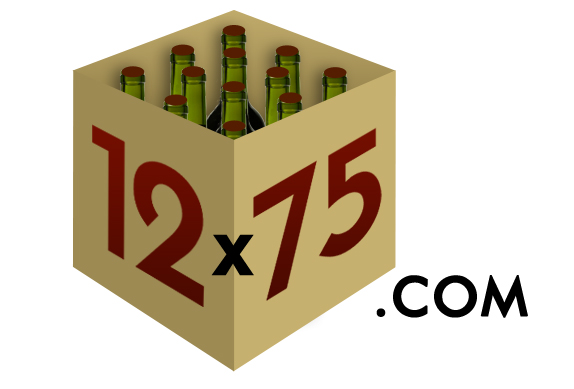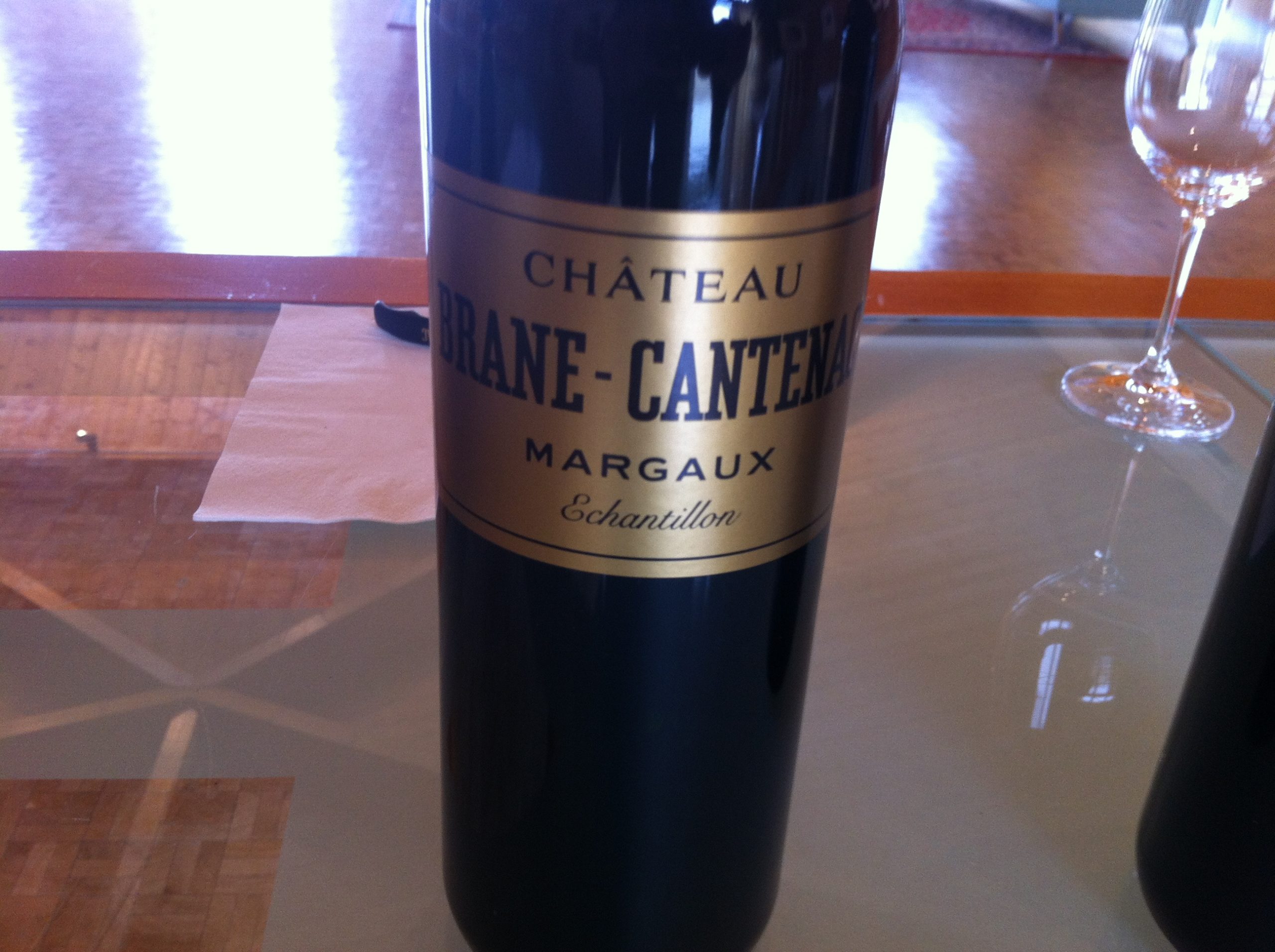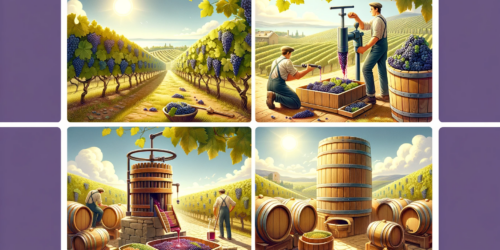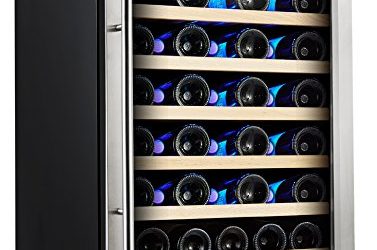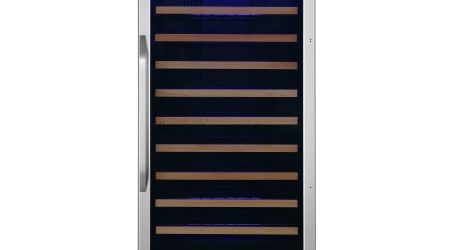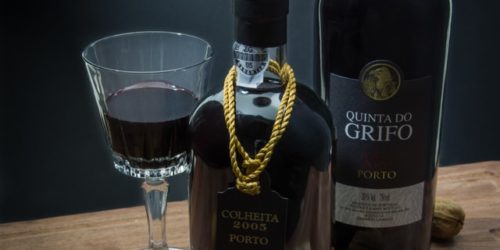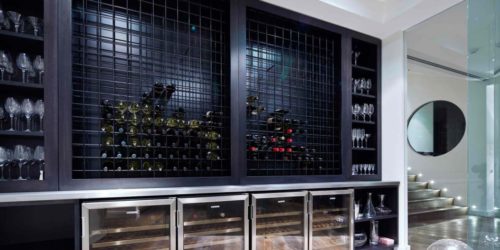Interview with Henri Lurton : Owner of Chateau Brane-Cantenac

Not when I was very young. But at age 14 I really knew. I was the only one that really wanted to do it. I was about age 14 when I realised I really wanted to do it. When the time came, I went to university in Bordeaux and studied with a professor who was a soil specialist. It was a natural choice for me.
My choice aged 14 was to run one of my father’s chateaux. But the link with Brane was different – it was such a family-run place. My passion is making wine, so I would have taken this passion to any of my father’s chateaux. There was a time when I told myself I wanted to be a doctor – but it was never my calling and I don’t believe I would have been any good at it!
There is a special link with Brane, even more than the others. I worked with one uncle who worked with my father. He used to come twice a week to Brane, and two days a week we went to Bouscaut, Climens, Camarsac, and the others. For all my brothers and sisters the link with our parents is here. My parents still live in the chateau and it’s still a family home. It’s like I AM just looking after it for now and when the time comes, I will pass it on to the next generation.
WE are 10 of us altogether and all of us work in the wine industry. Some of them went on to other professions, but we all came back to wine. It was so much part of our life when we were growing up that we all found our way back to it.
It is never easy to change generations because each generation lends something new to the wine. When the chateau passed from my grandfather to my father, my father made changes; he planted some new vines and changed some roads. My grandfather took a tumble when he was walking through one day, and he was not too happy! Of course, he was fine, and we still laugh about it today. Probably when the time comes my own son will make changes that I won’t entirely approve of, but it will be his own decision.
When we were building cellars, I went to see my father, and he said ‘just do what you want’. He was happy to come and see the finished cellars, and was very supportive. My father had confidence in me and wanted me to make my own decisions. I know he would have done things differently – but with each generation there are significant improvements in winemaking and so all of us have different decisions to make. We do the best we can with the tools we have.
Oh, I am certain there were decisions he didn’t agree with. But he allowed me to have freedom. Sometimes I was wrong, perhaps not all of the choices I made would have been the ones he made, but he wanted me to make them on my own. And quite often, I was right!
Yes, it is a very old fashion label, we had to keep putting more and more on the label. It used to be bronze powder, and we have had the current label for 5 years, which is the EMBOSSED black ink on gold. It is based on a style from the 19th century. We had a lot of other labels in the past as negociants tend to put their own labels on. It is easy to read, and we like it. 19th century marketing, who would have thought it?
I love making choices at harvest time. It is a special time, because you work the whole year for it, and have to plan it correctly. I have a great time with Christophe Capdeville, which began in 1991. A lot of decisions were made together, and if we didn’t always agree, we worked very well together and our ideas were fundamentally similar. The choices after vinification are made by a team, but we have a discussion about the tasting and what we ought to do. The decisions are important and everyone is involved.
Every year is different, and we have to work with the weather. I travel much more than I used to, and so even if I am in another country, I can get on the phone and make decisions based on the weather, with the team. The wine is the product of your decisions, together with the soil and terroir – so every year, you work and adapt and every year we learn a little more. We take risks sometimes. I’m not an artist, I don’t create anything really, but I love the part that I play in creating the wine.
I hardly ever think of my job as difficult, but dealing with mother nature can be difficult sometimes! We shouldn’t underestimate nature and this is apparent when we see her in action. It doesn’t bother me as much as it used to though. I used to worry about the hail and frost, but now I am philosophical about it. If it happens, it happens. It is hard FOR the people who work so hard all year to see their hard work go to waste. I try not to get too stressed though.
Not always; I try to stay calm though because if I am calm when there are problems and stressful situations the people I work with will hopefully be able to stay calm too.
There are 35 of us, and there is also work that is shared by the family.
His long term vision for his châteaux. I had 5 solid years of working with my father . I wanted to run a chateau but I also wanted to learn abroad. After 8 months, he asked me to come back though, he didn’t even wait a year to ask me to return.
I went to South Africa, Chile and Australia.
Yes it was an interesting time, and I learned a lot. Not just technically, but from working with different people and learning to understand their viewpoints on wine.
We don’t know exactly what is sold in the Far East, but I was fortunate to know the market quite well before. The Chinese market is very new so a lot of people were buying in large quantities, like in Japan in 1997. The Chinese market has not stopped, it will continue to grow, although not in the way it has done for the last 2 years.Here is what I think will happen in China – when there is a new market, importers buy a lot, and it is only after time that they see who is important. After a while the consumer doesn’t know – they have too much information. Every year I go to China, I see that the level of knowledge is changing.
Yes, we do.
We have about 70. They sell everywhere – it’s a good system.
It depends on vintages. 2005 was big in the US, as well as 2009. After London and Bordeaux, we don’t really know what’s sold where. Hong Kong is a great market place but most stock comes from London. (- )But the truth is we never really know. It is a free market, and I want to leave it like that. When the market is difficult, every negociant and importer is in competition for my wines, and that’s not so good, but when the market is good we can offer everywhere.
No, and that’s the way we have to work with the Bordeaux trade. It’s kind of an unwritten law.
It was a difficult year to make, but very good year at the end, so I can’t complain. I really like the Brane 2011 –it is not an average vintage. It’s a very good vintage. It has good colour and freshness, it is really aromatic with sufficient tannins, but can be approached early. Perhaps it is not as good as 2009 or 2010, but it is a great wine. If you look at the climate, you don’t want too much dryness in spring, because the vines need water. We don’t want it too hot in June or too cool in July – but in the end, we just taste the wine. We have to work all year to make the wine. We had a good September, and late rain in August, which Merlot doesn’t really like. It was very, very hard work but I am happy with the wine. At the end of the day, you make the best of the vintage you have got, and I know there is quality in the bottles.
Not really. Maybe I will try some today if I have some time; perhaps the Margaux. It is an uneasy time for winemakers to taste each other’s wines, during the En Primeur tasting.
I love to visit Brittany, where I enjoy simple passions like walking and running.
I used to, but I have stopped and want to get back to it again. I am not a very good runner but I enjoy it, it gives me a chance to relax and think. Walking requires more time. In one hour, you can relax and contemplate a lot of things. I love running near the sea, along the clifftops. I also love old cars, that is more of a hobby.
I have THREE sons and one daughter. I would love them to join me, but I would never push them. The middle one wants to, but I am not pushing him. Sometimes they talk about it but then they talk about other things they want to do – they are all different. Sometimes they talk about going into marketing, or maybe even the more technical aspects of winemaking, but I don’t know what they will decide.
I want to go on making wine my way, because I think that things are going well for us and our consumers are really happy. Previously it was a chateaux that was more for an older generation, and it has changed a lot. It is a wine that can provoke great emotions, powerful and structured. I think this style of wine represents one of the greatest terroir of Bordeaux.
If at the end of the wine’s journey, someone drinks it and enjoys it, then that is fine. It is the role of the negociants to keep it until it is ready to drink. For me, wine is a pleasure – it is not an investment. If people can afford it and want to drink it when it is ready, that is okay, but if its only goal is to rise in value, that would upset me. I don’t want to make wine that 5-10% of people drink while the rest just stash away indefinitely. I think that gold is meant to be kept in a bank, not wine!
I try to make great wines, and sell them quickly so that we will have money for the following year. I don’t store the wines to sell them later – I don’t want there to be less wines on the market. It is not the way I work.
Yes, but this is the year when we have to go back to more normal prices. I know what the price of 2011 Brane will be. The price is not high for a second growth, and we still have a good market in 2009 and 2010 outside China. England, Germany, Switzerland, Belgium and other parts of Europe are good markets for us. Top wines are too expensive so they look for second growths – who can really afford first growths these days, anyway?!
We were very excited to get this interview, and we’d like to thank our good friend Coco for arranging all. 12×75 are massive fans of Henri and Chateau Brane-Cantenac – and it was a tremendous privilege – THE EDITOR
